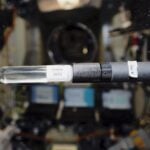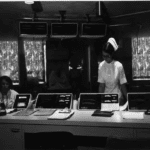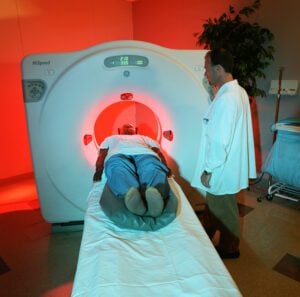Digital Image Processing – Medical Applications
Inducted In: 1994, Health, Medicine
Digital imaging was developed in the mid-1960s to explore the surface of the Earth’s moon. Conventional camera equipment mounted in the unmanned Ranger spacecraft returned distorted, lopsided images from the moon. NASA’s Jet Propulsion Laboratory engineer Dr. Robert Nathan began developing the first operational digital image processing software to address this problem. Digital Imaging – a process that turns analog signals into digital signals which are, in turn, fed into a computer for enhancement – returned sharp, accurate images of the lunar surface.
This began a steady stream of advances in digital image processing, spurred by the advent of ever-more sophisticated spacecraft transmitting immense volumes of image data from distances farther and farther from Earth. In the years following, JPL’s Drs. Robert Nathan, Robert Selzer, and Kenneth Castleman pioneered use of digital processing techniques to enhance electron microscope, x-ray, and light microscope images. This work sparked experimental medical applications by other organizations and emergence of a growing industry providing image processing systems for health care. Among medical applications derived from this technology are computed tomography (CAT) scanning, diagnostic radiography, brain or cardiac angiography, sonar body imaging, surgery monitoring, and nuclear magnetic resonance. Many successful companies and products today are direct offspring of digital imaging technology. The medical applications and refinements continue to bring significant new diagnostic resources to health professionals and the general public they serve.
Related Technologies

Bubble Detector
Inducted In: Featured, Health, Public Safety
Canada’s Bubble Technology Industries (BTI) created the Bubble Detector to detect and record levels of neutron radiation exposure to humans. The detector is a small vial about the size of your thumb. It is small enough and portable enough to…

Apollo 70 Cardiac Care Monitoring System
Inducted In: Featured, Health, Medicine
Founded in 1958, Spacelabs Healthcare approached NASA with their concept of a real-time system for monitoring astronauts’ vital signs while in orbit, including a telemetry system to simultaneously transmit the data back to Earth. From 1962 to 1967, Spacelabs was…

Programmable Implantable Medication System
A family of biomedical implantable devices have been developed over the past decade which are based on a wide array of space technologies, including battery advances, miniaturized circuitry, digital telemetry, and electronic sensing systems. The initial device was the rechargeable…

